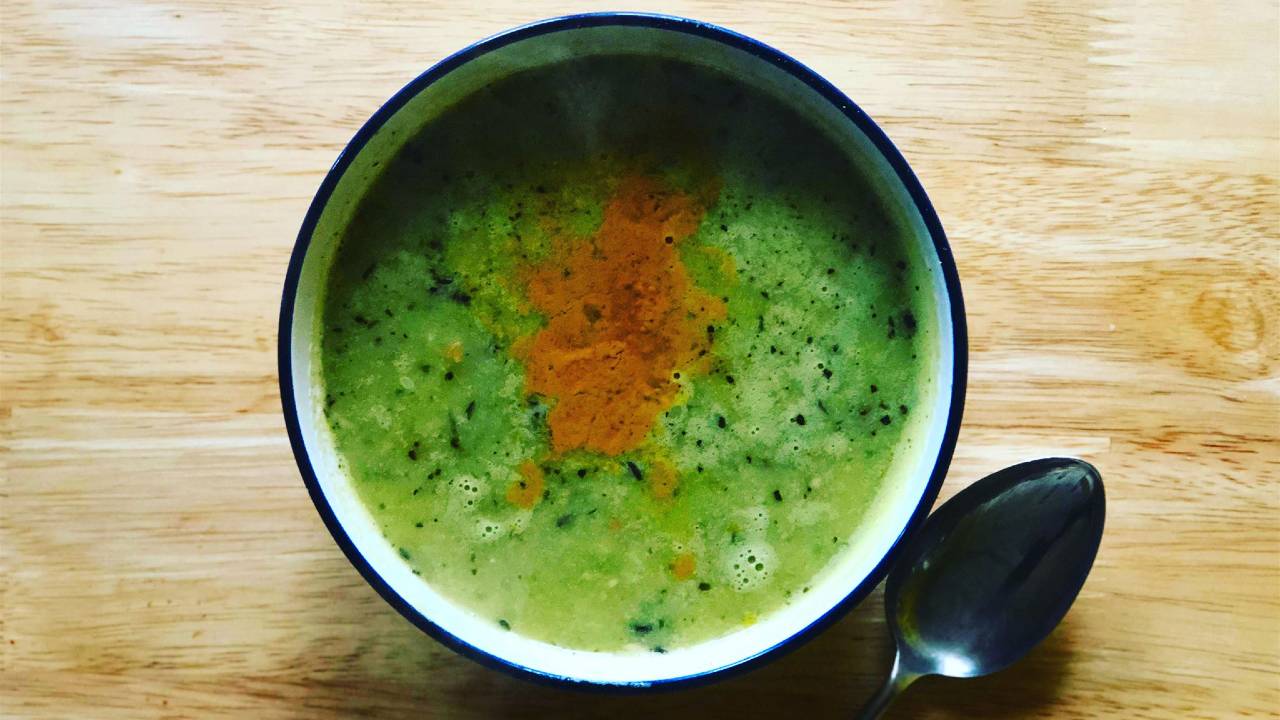Welcome to the world of seasonal eating! In today’s fast-paced world, it’s easy to forget the importance of consuming fruits and vegetables at their peak freshness. Eating seasonally not only ensures that you get the best quality and flavor from your produce, but it also has numerous health benefits. By incorporating seasonal ingredients into your meals, you can support local agriculture, reduce your carbon footprint, and enjoy a more diverse and nutritious diet. In this article, we will explore the benefits of eating seasonally and provide you with delicious recipes for each season. So, let’s dive in and discover the joys of seasonal eating!
Benefits of Eating Seasonally

When you choose to eat seasonally, you reap a wide range of benefits. Here are some key advantages of incorporating seasonal produce into your diet:
- Nutritional benefits: Seasonal fruits and vegetables are picked at their peak ripeness, ensuring that they are packed with essential vitamins, minerals, and antioxidants.
- Enhanced flavor: Seasonal produce is fresh and full of flavor, making your meals more enjoyable and satisfying.
- Eco-friendly: Eating seasonally reduces the need for long-distance transportation, thereby reducing carbon emissions and supporting sustainable farming practices.
- Cost-effective: Seasonal produce is often more affordable as it is abundant and readily available.
- Support for local farmers: Choosing seasonal produce supports local agriculture and helps small-scale farmers thrive in your community.
Importance of Supporting Local Agriculture
Supporting local agriculture is vital for sustaining local communities and the environment. By purchasing produce from local farmers, you contribute to their livelihood and help stimulate the local economy. Moreover, supporting local agriculture reduces the carbon footprint associated with long-distance transportation of food. It also promotes sustainable farming practices and helps preserve valuable agricultural land. Additionally, buying from local farmers allows you to connect with the people who grow your food and gain a deeper understanding of where your food comes from. So, by supporting local agriculture, you can make a positive impact on your community and the planet.
Spring Season
Spring is a season of renewal and fresh beginnings. Embracing the beauty of spring can also benefit your health and taste buds. Eating seasonal produce during this time provides you with an abundance of nutrients. Fresh fruits and vegetables like strawberries, asparagus, and peas offer vitamins, minerals, and antioxidants. These ingredients can be used to create delicious recipes like strawberry spinach salad or roasted asparagus with lemon. By enjoying the flavors of spring, you can nourish your body and celebrate the vibrant produce this season has to offer.
Benefits of Eating Seasonal Spring Produce

Eating seasonal spring produce has numerous benefits for your health and well-being. Here are some of the key advantages:
- Nutrient-rich: Spring fruits and vegetables are packed with essential vitamins and minerals, providing your body with the nutrients it needs to thrive.
- Increased freshness: By consuming seasonal produce, you are guaranteed to enjoy the freshest and highest-quality ingredients, which enhances their taste and nutritional value.
- Support local agriculture: Choosing seasonal produce supports local farmers and promotes sustainable farming practices, contributing to the overall health of your community.
- Budget-friendly: Seasonal produce tends to be more abundant and therefore more affordable. This allows you to enjoy a wide variety of nutritious foods without straining your wallet.
- Diverse flavors: Spring produce offers a wide array of flavors and textures, allowing you to explore new recipes and create delicious meals that celebrate the vibrant essence of the season.
By incorporating seasonal spring produce into your diet, you can nourish your body with fresh, flavorful ingredients while reaping the many benefits they provide.
Delicious Recipes Using Spring Ingredients
Delicious Recipes using Spring Ingredients:
- Spring Pea Salad: Combine fresh peas, cherry tomatoes, thinly sliced radishes, and crumbled feta cheese. Drizzle with a lemon vinaigrette and sprinkle with chopped mint leaves for a refreshing and light salad.
- Asparagus and Mushroom Risotto: Sauté asparagus and mushrooms in olive oil, then add Arborio rice and vegetable broth. Cook until creamy, and finish with Parmesan cheese and a squeeze of lemon for a burst of flavor.
- Strawberry Spinach Salad: Toss spinach leaves, sliced strawberries, toasted almonds, and crumbled goat cheese. Drizzle with a balsamic vinaigrette for a sweet and savory salad.
- Lemon Garlic Shrimp with Spring Vegetables: Sauté shrimp, asparagus, snap peas, and cherry tomatoes in a lemon garlic sauce. Serve over quinoa or rice for a quick and healthy meal.
These recipes celebrate the fresh and vibrant flavors of spring, allowing you to enjoy the best that the season has to offer.
Summer Season
The summer season is a time when an abundance of fresh and delicious produce is available. Eating seasonal summer produce not only allows you to enjoy the best flavors, but it also offers numerous health benefits. Some of the benefits of eating seasonal summer produce include:
- High vitamin and mineral content
- Hydration from water-rich fruits and vegetables
- Increased antioxidant intake for protection against sun damage
To make the most of the summer season, try incorporating these delicious recipes using summer ingredients into your meals:
- Grilled vegetable skewers with a tangy lemon garlic marinade
- Watermelon and feta salad with mint and balsamic glaze
- Tomato and cucumber gazpacho for a refreshing chilled soup
- Grilled peaches with a honey and cinnamon glaze for a sweet summer dessert.
By embracing the flavors of the summer season, you can enjoy nutritious and flavorful meals all season long.
Benefits of Eating Seasonal Summer Produce

Summer produce is not only delicious but also offers a range of health benefits. By eating seasonal summer produce, you can enjoy the following advantages:
- High vitamin and mineral content: Summer fruits and vegetables are packed with essential nutrients like vitamins A, C, and E, as well as minerals like potassium and magnesium.
- Hydration: Water-rich fruits and vegetables, such as watermelon and cucumbers, help keep you hydrated during the hot summer months.
- Increased antioxidant intake: Summer produce like berries and leafy greens are rich in antioxidants, which help protect against sun damage and support overall skin health.
By incorporating seasonal summer produce into your meals, you can nourish your body and enjoy the fresh flavors of the season.
Delicious Recipes using Summer Ingredients
Summer is the perfect time to indulge in the delicious flavors of seasonal produce. Here are some mouthwatering recipes that highlight the vibrant ingredients of summer:
- Caprese Salad: Combine ripe tomatoes, fresh mozzarella, and fragrant basil for a classic and refreshing summer salad.
- Grilled Corn on the Cob: Brush corn with melted butter and sprinkle with salt and pepper, then grill until tender and slightly charred for a smoky and sweet side dish.
- Watermelon Feta Salad: Mix juicy watermelon, tangy feta cheese, and crisp cucumbers, then drizzle with a light citrus dressing for a refreshing and hydrating salad.
- Strawberry Spinach Salad: Toss together sweet strawberries, spinach leaves, toasted almonds, and a balsamic vinaigrette for a light and nutritious summer salad.
- Grilled Peach and Burrata Crostini: Top toasted baguette slices with grilled peaches, creamy burrata cheese, and a drizzle of honey for a delightful appetizer or snack.
These recipes showcase the delicious and vibrant flavors of summer produce, making them perfect for enjoying during the warm weather months.
Autumn Season
Autumn is a season of vibrant colors and comforting flavors. Eating seasonal produce during this time of year not only supports local agriculture but also provides numerous health benefits. Autumn produce is rich in vitamins, minerals, and antioxidants that help boost immunity and protect against seasonal ailments. Some delicious recipes to try with autumn ingredients include roasted butternut squash soup, apple cinnamon oatmeal, pumpkin spice latte, and honey-glazed carrots. Embrace the bounty of autumn by incorporating these flavorful ingredients into your meals and savor the taste of the season.
Benefits of Eating Seasonal Autumn Produce
During the autumn season, eating seasonal produce offers a variety of benefits for your health. Here are some benefits of consuming autumn produce:
- Nutrient-rich: Autumn produce such as butternut squash, apples, and carrots are packed with essential vitamins, minerals, and antioxidants that support overall well-being.
- Boosts immunity: Autumn produce is rich in vitamin C and other immune-boosting nutrients, which can help strengthen your immune system and protect against seasonal illnesses.
- Satisfying and comforting: Autumn produce lends itself to hearty and comforting dishes that nourish both the body and soul.
- Supports digestion: Many autumn fruits and vegetables, like pumpkin and sweet potatoes, are high in fiber, aiding in digestion and promoting a healthy gut.
- Promotes weight management: Seasonal produce tends to be lower in calories and higher in fiber, helping to support weight management goals.
Incorporating autumn produce into your meals not only adds flavor and vibrancy to your dishes but also boosts your overall health and well-being.
Delicious Recipes using Autumn Ingredients
Incorporating autumn ingredients into your meals can add warmth and flavor to your dishes. Here are some delicious recipes using autumn produce:
- Roasted Butternut Squash Soup: Roast butternut squash, onions, and garlic, then blend them into a velvety soup. Top with crispy sage and a drizzle of cream for a comforting meal.
- Apple and Cabbage Salad: Thinly slice apples and cabbage, then toss with a tangy vinaigrette. Add some toasted walnuts and crumbled blue cheese for extra texture and flavor.
- Maple Glazed Carrots: Roast carrots with a sweet and sticky maple glaze. The caramelization adds depth to the natural sweetness of the carrots.
- Pumpkin Spice Energy Balls: Combine pumpkin puree, rolled oats, nut butter, and warm spices to create bite-sized energy balls. Perfect for an autumn-inspired snack.
Remember, autumn ingredients offer a bounty of flavors and textures that can elevate your meals to the next level.
Winter Season
During the winter season, there is a variety of seasonal produce that can add freshness and nourishment to your meals. Some benefits of eating seasonal winter produce include:
- Nutritional content: Winter fruits and vegetables tend to be packed with essential vitamins and minerals that can help strengthen your immune system during the cold months.
- Budget-friendly: Seasonal produce is often more affordable since it doesn’t require long-distance transportation.
- Taste and flavor: Winter produce such as citrus fruits, root vegetables, and dark leafy greens have a rich and robust flavor that can enhance your dishes.
Here are some delicious recipes using winter ingredients:
- Roasted Winter Vegetable Medley: Toss a mix of winter root vegetables like carrots, parsnips, and potatoes with olive oil, garlic, and herbs. Roast until tender and caramelized for a comforting side dish.
- Citrus Salad with Winter Greens: Combine vibrant citrus fruits like oranges and grapefruits with winter greens such as kale or arugula. Drizzle with a tangy vinaigrette for a refreshing and nutritious salad.
- Roasted Butternut Squash Risotto: Creamy and comforting, this risotto is made with roasted butternut squash, Arborio rice, and a hint of Parmesan cheese.
Incorporating seasonal winter produce into your meals not only supports local agriculture but also allows you to enjoy the best flavors and nutritional benefits that the season has to offer.
Benefits of Eating Seasonal Winter Produce

Eating seasonal winter produce offers a range of benefits. Firstly, winter fruits and vegetables are rich in essential vitamins and minerals, helping to boost your immune system during the cold months. Additionally, seasonal produce is often more budget-friendly, as it doesn’t require long-distance transportation. The taste and flavor of winter produce, including citrus fruits, root vegetables, and dark leafy greens, are also enhanced during this time. By incorporating seasonal winter produce into your meals, you can enjoy the nutritional benefits and robust flavors that this season has to offer.
Delicious Recipes Using Winter Ingredients
When it comes to cooking with winter produce, you have a variety of delicious options to choose from. Here are some recipes that highlight the flavors of seasonal winter ingredients:
- Roasted Root Vegetables: Toss a mix of carrots, parsnips, and turnips with olive oil, salt, and pepper. Roast in the oven until tender and caramelized for a comforting side dish.
- Citrus Salad: Combine segments of juicy oranges, grapefruits, and blood oranges with fresh herbs like mint or basil. Drizzle with a tangy vinaigrette for a refreshing and vibrant salad.
- Butternut Squash Soup: Simmer roasted butternut squash with onions, vegetable broth, and warming spices like cinnamon and nutmeg. Blend until smooth and creamy for a comforting winter soup.
- Brussels Sprouts with Bacon: Sauté Brussels sprouts with crispy bacon and garlic until tender. Finish with a squeeze of lemon juice for a savory and satisfying side dish.
These recipes will not only showcase the flavors of winter produce but also provide you with nourishing and satisfying meals during the colder months.
Conclusion

In conclusion, eating seasonally offers numerous benefits for both our health and the environment. By consuming fresh, local produce at its peak ripeness, we can enjoy maximum flavor, nutrition, and variety in our diets. Supporting local agriculture also helps to strengthen our communities and reduce our carbon footprint. Incorporating seasonal eating into your lifestyle can be as simple as shopping at farmers markets, joining a community-supported agriculture program, or growing your own fruits and vegetables. So, next time you plan your meals, embrace the flavors and benefits of eating seasonally for a truly satisfying and sustainable dining experience.
Overall Benefits of Eating Seasonally
- Fresher and tastier produce: Seasonal fruits and vegetables are harvested at their peak ripeness, ensuring superior flavor and taste.
- Higher nutritional value: Freshly picked produce retains more nutrients compared to their off-season counterparts, providing a greater range of vitamins, minerals, and antioxidants.
- Better for the environment: Consuming locally sourced seasonal produce reduces the energy required for transportation and supports sustainable farming practices.
- Variety in your diet: Eating seasonally allows you to enjoy a wide range of fruits and vegetables throughout the year, promoting a diverse and balanced diet.
- Cost savings: Seasonal produce is often more affordable due to the abundance of supply, allowing you to save money while enjoying high-quality ingredients.
Tips for Incorporating Seasonal Eating into Your Lifestyle

- Visit local farmers’ markets or join a community-supported agriculture (CSA) program to access a variety of seasonal produce.
- Plan your meals around the seasonal fruits and vegetables available in your area.
- Experiment with new recipes that feature seasonal ingredients.
- Preserve the flavors of the season by canning, freezing, or dehydrating surplus produce.
- Educate yourself about the seasons and what produce is available during each time of year.
- Support restaurants and cafes that prioritize seasonal and locally sourced ingredients.
- Consider growing your fruits and vegetables at home, even if it’s just a small herb garden.
- Embrace the challenge of eating with the seasons and enjoy the unique flavors and nutrients that each season brings.

